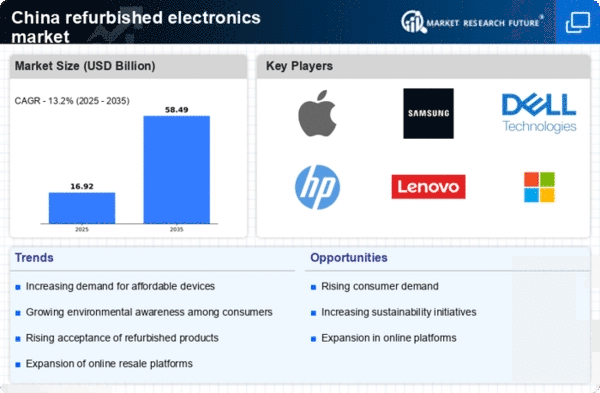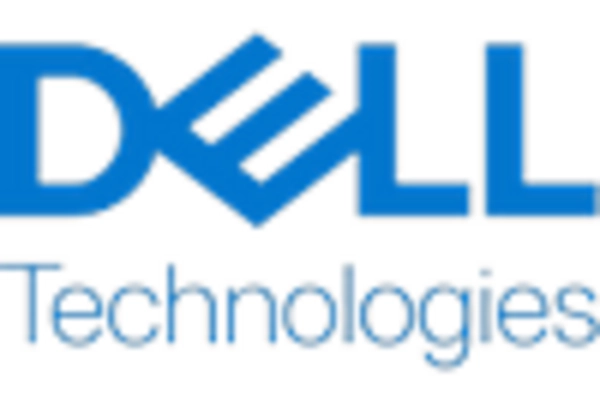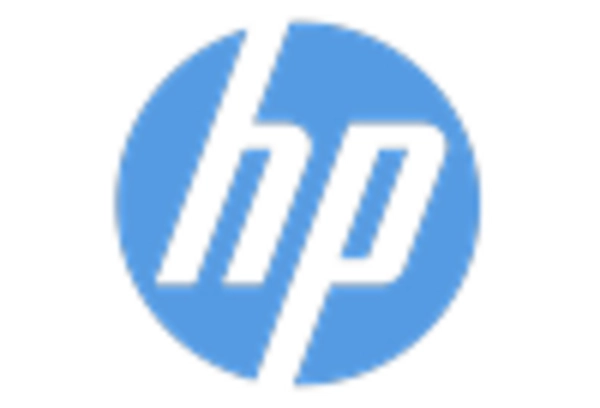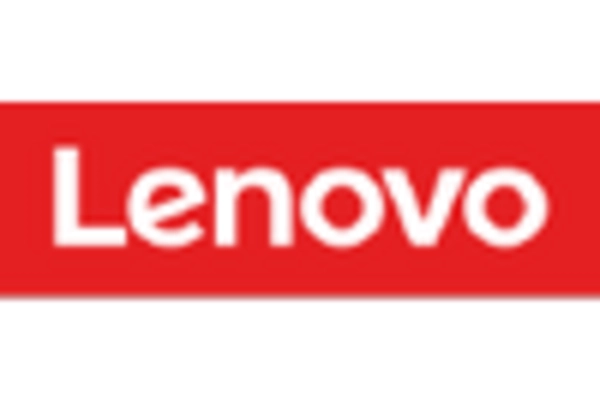Expansion of Online Retail Platforms
The expansion of online retail platforms is significantly impacting the refurbished electronics market in China. E-commerce giants are increasingly offering refurbished products, making them more accessible to a broader audience. This trend is particularly advantageous for consumers who prefer the convenience of online shopping. The refurbished electronics market is likely to experience substantial growth as these platforms enhance visibility and availability of refurbished items. Recent statistics suggest that online sales of refurbished electronics have surged by 25% in the past year, indicating a strong consumer preference for purchasing refurbished products through digital channels. This shift towards online retail is expected to continue, further propelling the market forward.
Increased Awareness of Electronic Waste
Growing awareness of electronic waste and its environmental impact is driving the refurbished electronics market in China. Consumers are becoming more informed about the consequences of electronic disposal, leading to a shift in purchasing behavior towards refurbished products. This heightened awareness is fostering a culture of sustainability, where consumers actively seek out refurbished options as a means to reduce their ecological footprint. The refurbished electronics market is likely to benefit from this trend, as more individuals recognize the importance of responsible consumption. As a result, the market may see a significant increase in demand, potentially reaching a growth rate of 18% in the coming years.
Environmental Regulations and Compliance
The refurbished electronics market in China is increasingly influenced by stringent environmental regulations aimed at reducing electronic waste. The government has implemented policies that encourage recycling and refurbishment as sustainable practices. These regulations not only promote environmental responsibility but also create a favorable environment for the refurbished electronics market to thrive. Companies that comply with these regulations are likely to gain a competitive edge, as consumers become more conscious of their purchasing decisions. The market is expected to grow as businesses align their operations with these environmental standards, potentially leading to a 20% increase in the adoption of refurbished products over the next few years.
Rising Consumer Demand for Affordability
The refurbished electronics market in China experiences a notable surge in consumer demand driven by the increasing need for affordability. As the cost of new electronics continues to rise, consumers are increasingly turning to refurbished options as a viable alternative. This shift is particularly evident among younger demographics, who prioritize budget-friendly choices without compromising on quality. Recent data indicates that the refurbished electronics market in China has grown by approximately 15% annually, reflecting a significant trend towards cost-effective purchasing. This growing consumer base is likely to further stimulate the market, as more individuals recognize the value and reliability of refurbished products. Consequently, the refurbished electronics market is poised for continued expansion, as affordability becomes a central theme in consumer purchasing behavior.
Technological Advancements in Refurbishment Processes
Technological advancements play a crucial role in enhancing the quality and reliability of refurbished electronics in China. Innovations in refurbishment processes, such as automated testing and quality assurance protocols, have significantly improved the standards of refurbished products. These advancements not only ensure that refurbished items meet consumer expectations but also contribute to a more sustainable approach to electronics consumption. The refurbished electronics market benefits from these improvements, as they instill greater confidence among consumers regarding the performance and longevity of refurbished devices. As a result, the market is likely to witness an increase in sales, with consumers more willing to invest in refurbished products that are backed by rigorous testing and quality control measures.















